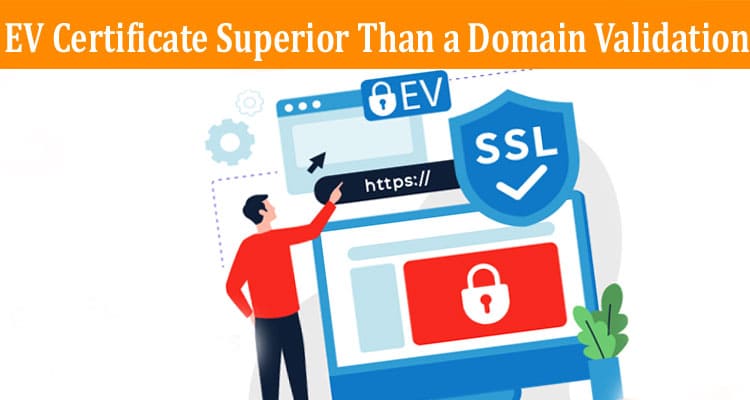Online security is crucial in the current digital era, especially for e-commerce websites that handle sensitive client data like credit card numbers, addresses, and other personal information. Using an SSL/TLS certificate, which encrypts communication between the website and its users, is one technique to increase the security of an e-commerce website. But not every SSL/TLS certificate is made equal.
Domain Validation (DV), Organization Validation (OV), and Extended Validation are the three different types of SSL/TLS certificates. (EV). The most complete and safe choice for ecommerce websites, even though all three provide encryption, is an EV certificate.
The degree of authentication necessary to obtain an EV certificate vs a DV certificate is the primary distinction between them. While an EV certificate necessitates additional measures to validate the business’s legal and physical presence, a DV certificate just confirms that the domain belongs to the company obtaining the certificate. Hackers will find it much more difficult to obtain an EV certificate falsely because to this additional layer of authentication.
Additionally, EV certificates prominently display the corporate name in the browser’s address bar, boosting user confidence in the website. This is crucial for e-commerce websites because customers are expected to divulge private data.
Despite the fact that all SSL/TLS certificates offer encryption, an EV certificate is the best choice for e-commerce websites because it undergoes a thorough validation procedure and boosts user confidence.What does an authentication certificate serve?
Digital certificates or security certificates, usually referred to as authentication certificates, are essential for protecting online communication and transactions. Verifying the identification of a person, device, or organization is the main function of authentication certificates.
A reputable third-party certification authority (CA) issues an authentication certificate following a thorough verification procedure. This certificate includes details including the certificate holder’s name, the public key, the date of expiration, and the name of the CA that issued it. The user’s device verifies the authenticity of the authentication certificate with the CA when they attempt to access a website or application that has one.
By requiring authentication, a user may be certain that they are speaking with the correct person and not a fraudster. Additionally, it guards against malicious assaults like man-in-the-middle attacks, in which a perpetrator snoops on a user’s communication with a receiver and modifies it.
A multitude of situations, including secure online transactions, restricting access to websites and applications, and encrypting communication, call for the usage of authentication certificates. Authentication certificates are used in a business setting to confirm the identification of users, devices, and systems.
In order to build trust and secure online communication, authentication certificates are crucial. They are a crucial part of online security because they offer a safe means to confirm users’ identities and defend against malicious assaults.Wildcard certificates: are they safe?
SSL/TLS certificates called wildcards are used to secure numerous domain subdomains. A single wildcard certificate can secure all subdomains rather than requiring unique certificates for each one. A wildcard certificate for “*.example.com,” for instance, can protect websites like “www.example.com,” “shop.example.com,” “blog.example.com,” and others.
The answer to the frequently asked topic of whether wildcard certificates are secure is that it depends on the use case. In general, wildcard certificates are regarded as secure when used for their intended purpose of protecting several subdomains under a single domain. There are several things to keep in mind, though.
One issue is that all subdomains protected by a wildcard certificate will be at risk if the certificate’s private key is stolen. Therefore, it is essential to manage keys properly and to keep the private key secure.
The fact that wildcard certificates might not be appropriate for safeguarding domains with various levels of security requirements is another thing to take into account. For instance, securing a subdomain that needs extended validation (EV) SSL/TLS certificates may not be appropriate for a wildcard certificate. For each subdomain in such circumstances, individual EV certificates need be produced.
Finally, it should be noted that wildcard certificates are often safe when used for securing numerous subdomains under a single domain. However, it’s crucial to remember to handle keys properly and to take into account the various subdomain security needs. To ensure the highest level of security with any SSL/TLS certificate, it is crucial to pick a reliable certifying authority and adhere to recommended certificate management procedures.


